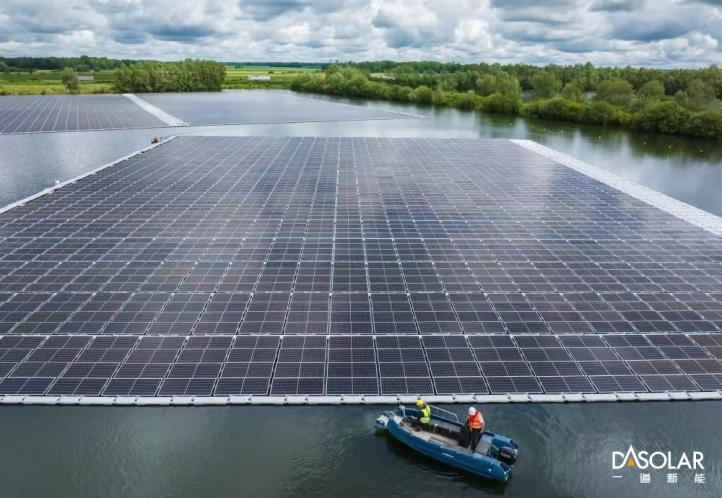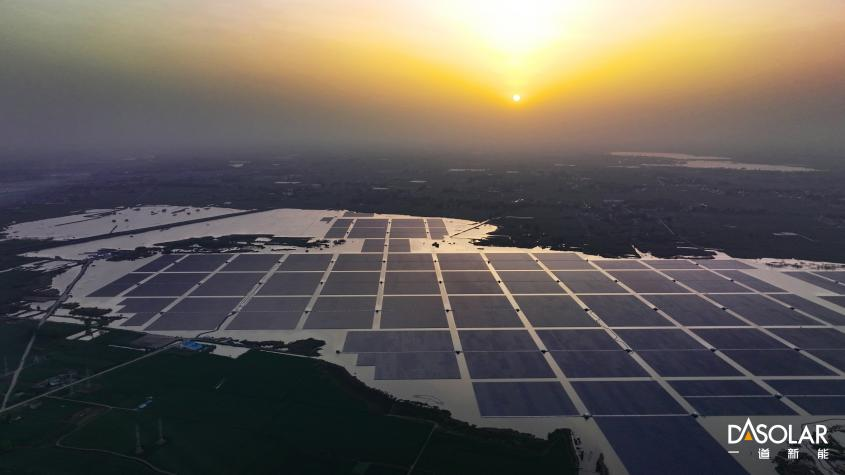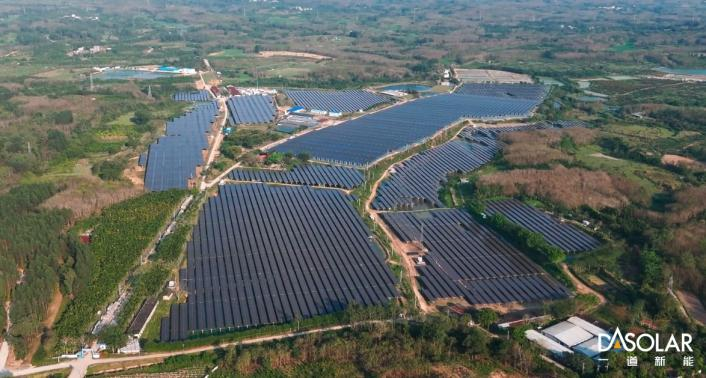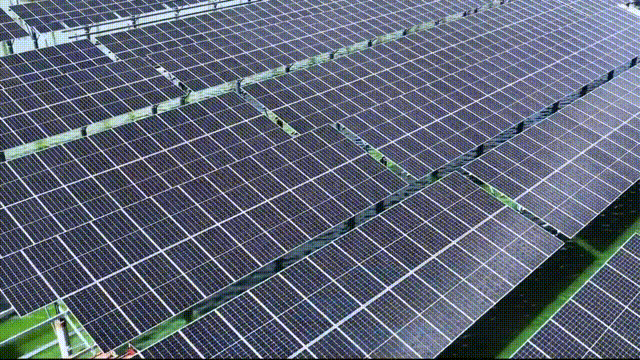DAS Floating PV Scenario Solution Pioneers the Symbiosis of Water and Solar
2025-03-24
Floating photovoltaics (FPV) is revolutionizing the renewable energy landscape by harnessing solar energy from water surfaces. This innovative approach is particularly transformative in regions where land is scarce, offering a sustainable solution that maximizes the utility of existing water bodies. By deploying solar modules on reservoirs, hydroelectric dams, and lakes, FPV eliminates the need for extensive land use, thereby preserving valuable terrestrial resources for agriculture and natural habitats. Moreover, the water beneath acts as a natural cooling mechanism, enhancing the efficiency of the solar systems. This synergy between solar energy production and water conservation exemplifies a forward-thinking strategy in the pursuit of clean energy growth and sustainable development.
DAS Solar's FPV systems utilize advanced, bifacial N-type modules designed to withstand the challenges of humid and variable conditions on water. With robust mounting systems and UV-resistant technology, DAS Solar ensures optimal durability and reliable energy production in FPV applications.
In Les Ilots Blandin Lake, a 127-hectare expanse of blue waters in southern France, a silent transformation is underway—turning the lake into a renewable energy oasis. In collaboration with Q ENERGY France, DAS Solar has helped build Europe's largest floating solar power plant, boasting an installed capacity of 74.3MW, capable of supplying clean electricity to 37,000 households annually. By utilizing unused water surfaces instead of land, every high-efficiency dual-glass module deployed not only captures direct sunlight but also harnesses reflected light from the water, maximizing power generation. Additionally, the floating PV system helps curb algae growth and improve water quality, reinforcing the synergy between renewable energy and environmental conservation.

A vast water expanse formed by coal mining subsidence was once considered an ecological scar. Today, with DAS Solar's technology, this once barren landscape is being transformed into a thriving green energy hub. By installing floating PV modules on the subsidence zone's water surfaces, the 650MW wind-solar-storage integrated project integrates solar power generation, ecological aquaculture, and water management, creating a multi-dimensional utilization model—generating electricity above, cultivating fish below, and restoring land that was once left unusable.

In the region where Typhoon Yagi unleashed winds of Category 17, DAS Solar's flexible PV mounting system stood resilient, proving its unparalleled reliability in extreme conditions. With high clearance, large spans, and minimal land occupation,the flexible mounting system enables floating PV arrays to be deployed across vast fish ponds, while its adaptable row spacing optimally balances solar irradiation and aquaculture needs. Compared to traditional fixed structures, this system significantly reduces the number of water-based foundation piles, preserving the natural aquatic ecosystem.

A 1,010-acre fish pond is evolving into an Eco-Smart Fishing & Solar Park. This floating PV farm not only generates clean energy but also integrates solar power, ecological aquaculture, water system management, and environmental restoration, maximizing the three-dimensional utilization of water space. The modules act as shade canopies, reducing water temperature and evaporation, creating a cool refuge for fish during the scorching summer months, mitigating the risk of oxygen depletion while suppressing algae overgrowth and improving water quality. Meanwhile, the natural cooling effect of the water on modules and cables significantly enhances power generation efficiency, delivering mutual benefits for fisheries, electricity production, and environmental sustainability.

As land resources become increasingly constrained, DAS Solar sets its sights on the vast oceans, pioneering the offshore smart aquaculture project—a disruptive innovation redefining the concept of marine farming. Utilizing high-clearance, large-span flexible mounting systems, the company is developing automated, intensive marine ranches, which not only reduce the environmental impact of traditional fish farming but also enable the dual benefits of aquaculture and solar energy generation. For remote offshore islands and reefs, DAS Solar's offshore life support system integrates a floating PV matrix with hydrogen production, freshwater desalination, and soil-free agriculture, creating a floating habitat that provides a self-sufficient, sustainable ecosystem for isolated islands.
With its groundbreaking DAS Floating solutions, DAS Solar is paving the way for innovative renewable energy applications across diverse aquatic environments. From fishery-integrated installations to offshore PV advancements, DAS Solar showcases the potential of renewable energy to operate sustainably across various water landscapes and demonstrates how FPV technology can play a pivotal role in the clean transition and carbon neutrality.







 浙公网安备33080302000236
浙公网安备33080302000236